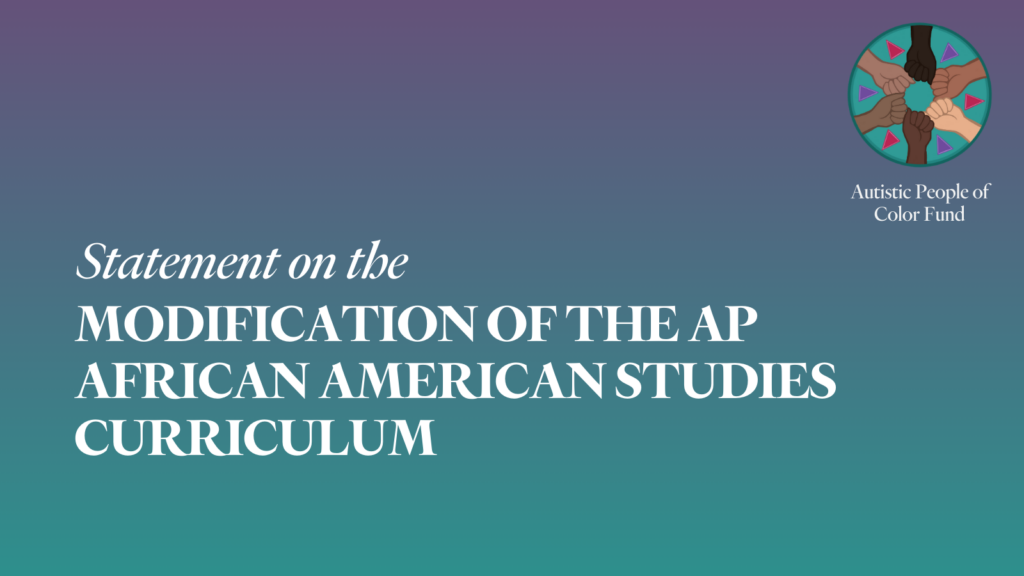APOC Fund Statement on the Modification of the AP African American Studies Curriculum

We condemn the modification of the College Board’s Advanced Placement (AP) African American Studies curriculum to remove content that involves an intersectional understanding of racial justice. By erasing the contributions of Black people who experience multiple forms of marginalization at once, the curriculum diminishes the cumulative effects of misogyny, homophobia, transphobia, and other forms of discrimination that can occur alongside racism. This was a cowardly decision intended to appease “anti-woke” right-wing commentators who choose to hide our history of racism and inequity rather than face it head-on.
This cowardice is evident in the treatment of Bayard Rustin and Kimberlé Crenshaw, two pivotal figures in Black history.
Bayard Rustin, an instrumental figure in the civil rights movement, is mentioned, though briefly—once a central figure, he is now but a footnote. His name must be whispered, not shouted from the rooftops. Acknowledging a Black gay man’s contributions means acknowledging that LGBTQ+ people deserve to be seen and heard. When states like Florida, as well as countries like Russia, silence LGBTQ+ narratives, they tell us in their words and deeds that we do not deserve to exist, that we must not exist, that we must not articulate our existence. This is a form of cultural genocide.
Kimberlé Crenshaw, a Black legal scholar and the creator of the term “intersectionality,” has been excised from the curriculum. After all, anyone who examines the relationships between race, gender, and power is a threat to white people who are unused to challenge and discomfort. Rustin may have been muffled, but Crenshaw was silenced altogether.
We are reminded of Audre Lorde’s statement that we do not live single-issue lives. Both Rustin and Crenshaw teach us that the fight for equity and justice is not a single-issue fight. Seeing ourselves written out of the picture rubs salt into the wound of oppression and suffering. We are being told that our history, our cultural contributions, our struggle against the injustices meted out to us—indeed, our very lives—do not matter.
People do not want to see what they do not want to understand. Those who prefer to ignore the weight of oppression, rather than helping us remove the yoke from around our necks, want to serve us all a curriculum that censors out the hard questions, the criticisms of hegemonic thinking that drives “anti-woke” policies, and the bitter realities that modern Black people must face in our day-to-day lives.
The teaching of history is not a zero-sum game. By all means discuss Washington, Lincoln, Franklin, and Truman. But there’s room to talk about Sojourner Truth, W.E.B. DuBois, Bayard Rustin, bell hooks, Audre Lorde, Octavia Butler, and other Black leaders, past and present.